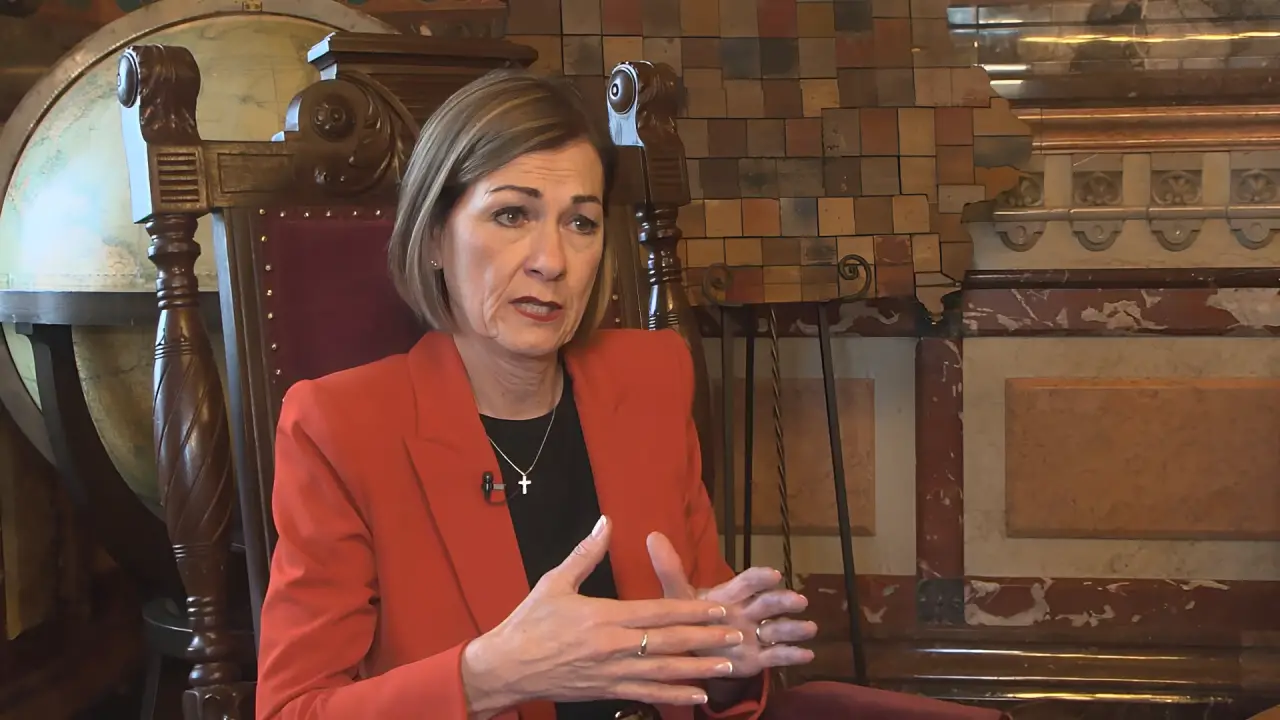Iowa Governor Kim Reynolds is poised to make a crucial decision on eminent domain reform that could have a significant impact on the future of pipeline projects in the state. The issue centers on the use of eminent domain—a legal power allowing the government or private entities to acquire private property for public use—to build infrastructure like pipelines.
In recent years, this practice has faced increasing scrutiny, with many landowners and advocacy groups questioning its fairness and necessity. With a key decision looming, Gov. Reynolds holds the power to either endorse reforms to the system or maintain the status quo, a decision that will undoubtedly influence the future of pipeline projects in Iowa.
What is Eminent Domain?
Eminent domain refers to the government’s authority to seize private land for public purposes, such as constructing roads, schools, or utilities. While this power is often used for public infrastructure, it has also been applied in cases where private companies, like pipeline operators, claim the land is necessary for their projects. In Iowa, several major pipeline projects have sparked debates about the fairness of using eminent domain for private business ventures that do not directly serve the public good, particularly when landowners are opposed to it.
The Pipeline Debate in Iowa
The specific case that has brought eminent domain back into the spotlight in Iowa revolves around the proposed carbon capture pipeline projects. These pipelines are designed to transport carbon dioxide from industrial facilities to underground storage sites, aiming to reduce the environmental impact of emissions.
Proponents of the pipelines argue that they are essential for reducing carbon emissions and helping Iowa meet its climate goals. However, opponents claim that using eminent domain to acquire private land for such projects is an abuse of power, especially when the pipelines primarily benefit private companies rather than the general public.
Over the past few years, various landowners and advocacy groups have voiced their concerns about the pipelines and the eminent domain process. They argue that the state’s current laws too easily allow private companies to take land for projects that are not strictly in the public interest. In response to growing opposition, there have been calls for reforming Iowa’s eminent domain laws to provide greater protections for landowners.
Governor Reynolds’ Role in the Decision
Governor Kim Reynolds has been a strong advocate for economic development and infrastructure projects in Iowa. As the state’s highest-ranking official, her decision on eminent domain reform for pipeline projects carries significant weight. Her stance on the issue will likely have long-lasting implications for the future of such projects and for the broader debate about private companies using eminent domain to secure land.
Reynolds has faced pressure from both sides of the issue. Supporters of the pipeline projects, including many business groups and some farmers, argue that the pipelines are a critical part of Iowa’s economic growth and environmental efforts.
They believe that using eminent domain is a necessary tool to facilitate the construction of these pipelines. On the other hand, landowners, environmentalists, and civil rights groups have pushed back, claiming that the process is unjust and that landowners deserve more protection when it comes to their property rights.
The Call for Reform
The debate over eminent domain reform in Iowa has intensified in recent months, with several state lawmakers pushing for changes to the current system. Some have proposed new legislation that would restrict the use of eminent domain for private pipeline projects, requiring stricter scrutiny and approval processes. Others have suggested that landowners should be compensated more fairly for the land taken from them and that they should have a more active role in the decision-making process.
Advocates for reform argue that the current system allows too much power to be concentrated in the hands of private companies and that it undermines the rights of individual property owners. They emphasize the importance of protecting property rights and ensuring that eminent domain is used only when absolutely necessary for public projects that benefit the broader community. For them, the case of the carbon capture pipelines serves as a clear example of why reforms are needed.
The Potential Impact of Gov. Reynolds’ Decision
Governor Reynolds’ decision on eminent domain reform will undoubtedly shape the future of pipeline projects in Iowa. If she decides to support reforms, it could lead to more stringent requirements for companies seeking to use eminent domain for pipeline construction. This could make it more difficult for private companies to acquire land for their projects and could slow down the development of future pipeline projects in the state.
On the other hand, if Reynolds chooses to maintain the current system, it could signal that Iowa is willing to continue using eminent domain as a tool for private business interests. This decision could pave the way for more pipeline projects to move forward with fewer restrictions, potentially alienating landowners and environmental groups who have been advocating for stronger protections.
What’s Next for Iowa’s Pipeline Projects?
As the decision draws nearer, all eyes are on Governor Reynolds. She is expected to carefully consider the economic, environmental, and political implications of her decision. With a growing number of Iowans voicing their concerns over the use of eminent domain for private projects, it is likely that Reynolds will face significant pressure to act in the best interest of the people she represents.

The outcome of this decision will likely set the stage for future debates over eminent domain reform not just in Iowa, but across the United States. As pipelines continue to play a critical role in the nation’s energy infrastructure, the balance between private business interests and landowners’ rights will remain a contentious issue. It is clear that Gov. Reynolds’ decision on this matter will not only impact Iowa’s pipeline projects but also influence the broader conversation about property rights, environmental concerns, and the power of eminent domain.
Possible Reforms and Challenges Ahead
While the push for reform is growing, there are significant challenges ahead. Reforming eminent domain laws requires careful consideration of the balance between protecting property rights and facilitating necessary infrastructure projects. The process of reform could take months or even years, and it is unclear whether Reynolds will fully embrace the calls for change or find a compromise that satisfies both sides of the debate.
Conclusion
Governor Reynolds’ decision on eminent domain reform will be a pivotal moment in Iowa’s history, particularly for landowners, pipeline companies, and environmentalists. The outcome will determine how Iowa balances economic growth and infrastructure development with the protection of private property rights. As the debate continues, it is clear that Iowa is at a crossroads, and the decision made by Gov. Reynolds could set a precedent for how similar issues are handled in other states across the nation.
Disclaimer: This article has been meticulously fact-checked by our team to ensure accuracy and uphold transparency. We strive to deliver trustworthy and dependable content to our readers.



